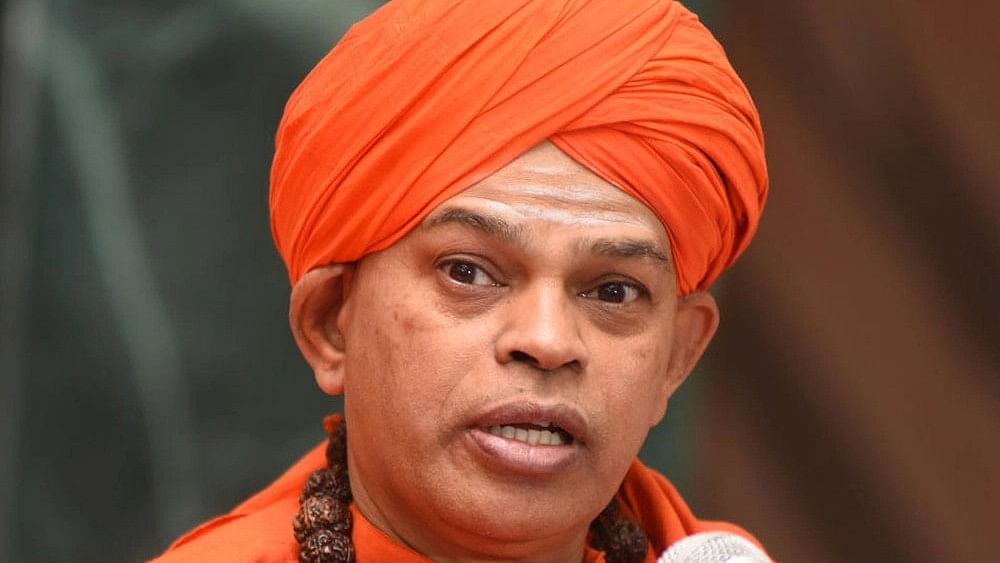
Murugha Mutt seer Shivamurthy Murugha Sharana.
Credit: DH File Photo
Bengaluru: The Karnataka High Court has rejected the petition filed by Murugha Mutt seer Shivamurthy Murugha Sharanaru praying expunging a portion of the deposition of one of the victims in the case registered under the Protection of Children from Sexual Offences (POCSO) Act. The seer had contended that marking of a statement rendered by the witness under CrPC section 164 is impermissible in law.
On June 10, 2024, the trial court had examined the chargesheet witness 2 as Prosecution witness 1, who is one of the victims. On June 21, the court passed an order that the statements recorded under section CrPC 164 (5) cannot be marked in examination-in-chief of the witnesses as it can only be used for contradiction or corroboration at the time of cross examination. On July 1, the witness had stated about what she had spoken before the magistrate while rendering the statement under section 164(5).
The seer moved the high court contending that it is indirectly marking the statement rendered under section 164. The counsel for the petitioner contended that what cannot be done directly cannot be permitted to be done indirectly by even questioning the witness regarding the statement that was rendered under section 164(5).
On the other hand, B N Jagadeesha, Additional State Public Prosecutor, contended that marking of section 164 statements is not barred in law. “The trial court has passed an order that section 164 statements cannot be marked. That would not mean the contents of Section 164 statement cannot be used in the cross-examination for contradiction or corroboration,” he stated.
Justice M Nagaprasanna cited the orders passed by the apex court on the issue and said the top court has held that a statement under section 164 is not substantive evidence and it can be used to corroborate a witness.
“If the law as laid down by the Apex Court, this Court or other High Courts is applied to the case at hand, what would unmistakably emerge is that a statement made under Section 164 of the CrPC, is not completely barred in law to mark the said statement, but it is not a substantive evidence and it being characterized as not a substantive evidence, it is only in a slightly higher pedestal than a statement made under Section 161 of the Cr PC, before the Investigating Officer. It can only be used for contradiction or corroboration at the time of cross-examination. What is done in the case at hand, in the considered view of the Court, is exactly the same,” the court said.